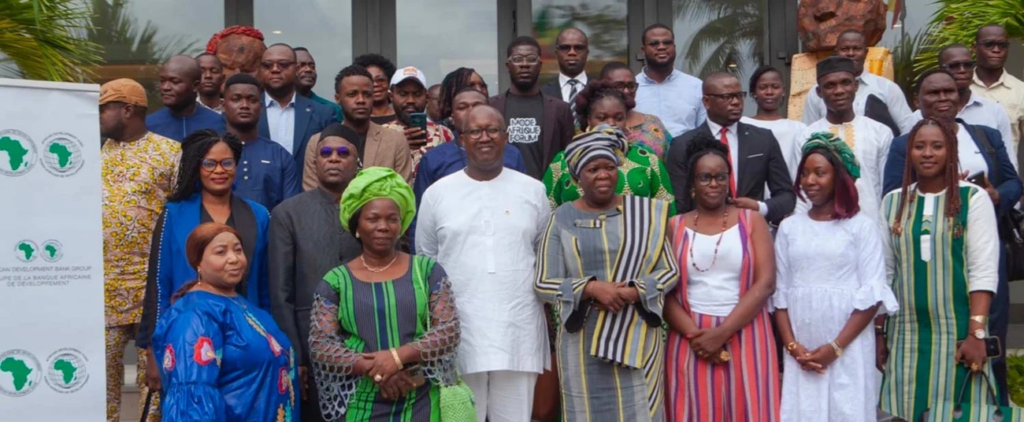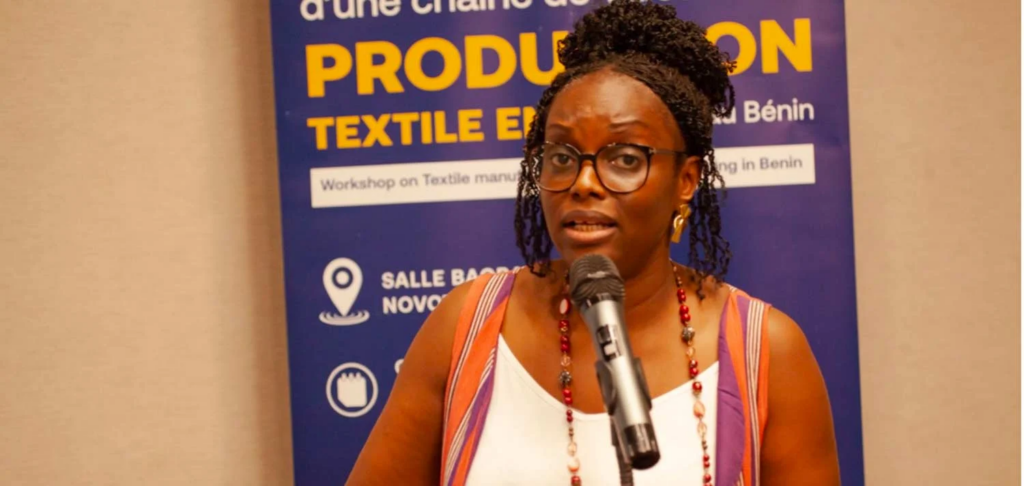
COTONOU, Benin, 5 August 2024 -/African Media Agency(AMA)/-The Country Office of the African Development Bank Group in Benin – one of Africa’s leading cotton producers – organised a workshop in Cotonou on 31 July 2024 to provide feedback about a study on private sector players bringing fresh momentum to the country’s textile industry.
The meeting marked the end of a process that began on 9 March 2023 with a workshop dedicated to the sector. This has led to collecting important data for a better understanding of the issues in the industry faced by the West African country.
Attendees at the workshop included several experts and national authorities, including the Vice-President of Benin, Ms Mariam Chabi Talata Zimé Yérima, private-sector players operating at all stages of the local cotton value chain, support functions (finance, training, transport, logistics, etc.) and representatives from the country’s technical and financial partners.
The meeting helped to identify opportunities and make core proposals to strengthen efforts to dynamize the cotton industry.
The study revealed multiple opportunities for developing the textile value chain, ranging from production units for accessories to making, logistics, distribution and solutions for taking care of textile items. Other opportunities relate to producing textile items for medical use or for furnishing, cosmetics or the automotive or food industries. The sanitary towels sector alone could generate annual revenue of over USD 13 million (8 billion CFA francs) for the country.
The study emphasised the numerous opportunities for creating tens of thousands of skilled jobs for young people and women.
The report also highlighted the opportunities for the Bank to contribute to the socioeconomic development of the textile industry in Benin and called on senior leaders to take decisions that would support the development of new local industries.

As well as cotton-based textiles, the study pointed to the colossal economic potential and the opportunity to create over 45,000 jobs in a new industry based on pineapple-leaf fibre.
Ms Nathalie Daouda, an expert consultant in the private-sector textile industry at the African Development Bank’s Country Office in Benin, who carried out the study, commented: “The potential additional revenue for the Beninese economy is over USD 5 billion (FCFA 3,000 billion) a year. And it would not take much to make the forecasts a reality, since Benin already has the natural and human resources needed to do the work. The next step is to produce and implement a national plan. The Beninese government has provided ample evidence of its ability to tackle ambitious challenges.”
The Vice-President of the Republic, Ms Mariam Chabi Talata Zimé Yérima, congratulated the Bank on its commitment to supporting an inclusive economy in Benin but above all, for the “realism, completeness and feasibility” of the study. “This report (…) is a sort of strategic plan for strengthening our economy through the textile industry and is relevant to us because developing our economy by building on this sector will help create a large number of jobs,” she emphasized.
“This strategic plan is the first of the steps we need to take to move from ideas to action and from theory to practice,” added Ms Yérima. She highlighted the job-creation opportunities for women and young people but also the economic and social potential of the strategic use of pineapple-leaf fibre for the Beninese textile industry.
Ms Faridatou Yekini, the founder of Mod’Ukpè, which specializes in woven pagne cloth and producing clothes for women, recognized that several actions are underway to boost local small and medium-sized enterprises (SMEs), with a particular focus on women-led businesses. “I am especially pleased to see that it is now possible for young designers to get financial and other forms of support for their initiatives in the textile sector. This development marks a significant step towards the growth and sustainability of our industry,” she said delightedly.
“The African Development Bank has done well to create a favourable environment to encourage collaboration, particularly with visits to the Glo Djigbé industrial area and capacity-building sessions for small and medium-sized businesses. These initiatives helped to formalize and organize my business, Safari Textiles Afrique, and develop positive partnerships. The logical next step would be continuing to fund businesses that are working to bring themselves into line, backed by serious monitoring to ensure good management of the funds,” advocated Caleb Menou, co-founder of the Safari Textiles Afrique brand.
The head of the Bank’s Country Office in Benin, Robert Masumbuko, highlighted the economic and inclusive social development potential of the industry, which is a real windfall for Benin in his view. “The Beninese ecosystem is full of talented women and men who produce really beautiful textile items on a daily basis. But all of them have commented frequently on the need for a clear plan to help them increase not only volumes but also the quality of their training. They need help to acquire or access modern, quality equipment for processing and production and above all, to get access to local and international markets with high-quality, competitive textile solutions,” he commented.
One of the Bank’s missions in relation to the private sector is to intervene financially in a smart, agile manner to provide efficient support for actors in various value chains, concluded Mr Masumbuko.
Distributed by African Media Agency on behalf of African Development Bank
The post Benin: the African Development Bank supports a study aimed at strengthening the textile industry through the private sector appeared first on African Media Agency.




